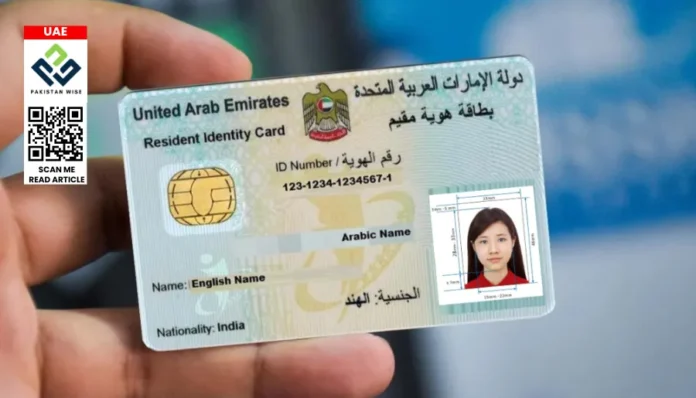- The UAE will phase out all plastic Emirates ID cards by the end of 2025, switching to a fully digital, face-based identification system.
- Biometric IDs using facial recognition and AI will work across major sectors—like banking, healthcare, and government—via secure mobile apps.
- This digital transformation promises faster, safer, and eco-friendly access to services, supporting the UAE’s vision for a smart, paperless future.
A New Era: UAE Moves to Digital Face-Based ID
The United Arab Emirates is making a major leap into the future by ending the use of physical Emirates ID cards. Instead of carrying a plastic card, residents will soon use advanced biometric technology—mainly facial recognition—making their face the new key to accessing services. This change is part of the country’s plan to become a world leader in smart, digital governance by 2030.
How the Digital ID System Works
The new system uses artificial intelligence and facial recognition to verify each person’s identity. Residents will access their digital ID through secure apps like the ICP Smart App and UAE Pass. When you need to prove who you are—at a hospital, bank, or government office—you simply scan your face, and the system checks it instantly against encrypted records. This removes the risks of lost cards, fake IDs, or long wait times.
Where Will Biometric ID Be Used?
The UAE’s digital ID will be used in almost every important sector:
- Government: For services like visa applications, licensing, and legal matters.
- Healthcare: To access medical records and appointments securely.
- Banking: For opening accounts, applying for loans, or verifying your identity.
- Telecommunications: For activating SIM cards or changing plans.
- Hospitality and Insurance: For hotel check-ins and managing policies.
Rollout Timeline and Phases
The Federal Authority for Identity, Citizenship, Customs, and Port Security (ICP) is rolling out the digital ID in clear stages. First, simple services like app logins were digitized. Now, more complicated services are being added, and by the end of 2025, the goal is for all Emirates and sectors to use the biometric system. This ensures a smooth transition for everyone, from residents to visitors.
Why Is the UAE Making This Change?
- Better Security: Biometric data like facial features are unique and much harder to fake than cards, making identity theft far less likely.
- Faster and Easier Access: Services that used to take minutes or hours—like renewing IDs or opening bank accounts—can now be done in seconds, without paperwork.
- Cost and Sustainability: No more plastic cards means less waste and lower costs for the government.
- Smart Government Vision: This move supports the UAE’s larger goals for digital transformation and eco-friendly, paperless public services.
Privacy and Data Protection
The UAE has put strict privacy laws in place to protect people’s biometric data. All information is encrypted, and no data is used without the user’s consent. Regular awareness campaigns help residents understand how their data is kept safe and how they can control who sees their information.
The UAE is leading the way in digital identity by replacing physical Emirates ID cards with a secure, AI-powered facial recognition system. This shift will make life easier, safer, and more efficient for everyone in the country, setting a new global standard for digital public services.
The system will enable contactless access to healthcare, banking, and government services via facial recognition, eliminating physical ID cards. Daily tasks like airport immigration and online document applications will become faster and paperless. Residents will experience seamless authentication across sectors, reducing wait times and bureaucratic hurdles.
Facial recognition offers enhanced security through unique biometric traits, reduces fraud risks, and speeds up identity checks. It replaces physical documents and passwords, enabling contactless transactions. The AI adapts to appearance changes, ensuring long-term accuracy.
The UAE employs advanced encryption, strict data protection regulations, and secure storage protocols for biometric databases. Ethical frameworks govern consent and usage, while cybersecurity investments safeguard against breaches.
Healthcare, banking, telecommunications, and government services will adopt biometric authentication for secure access. Airports and public transport will integrate facial recognition for streamlined processes.
The UAE leads in biometric innovation with a fully digital, AI-driven system replacing physical IDs, unlike many nations still transitioning. Its integration across sectors sets a global benchmark for efficiency and security.

